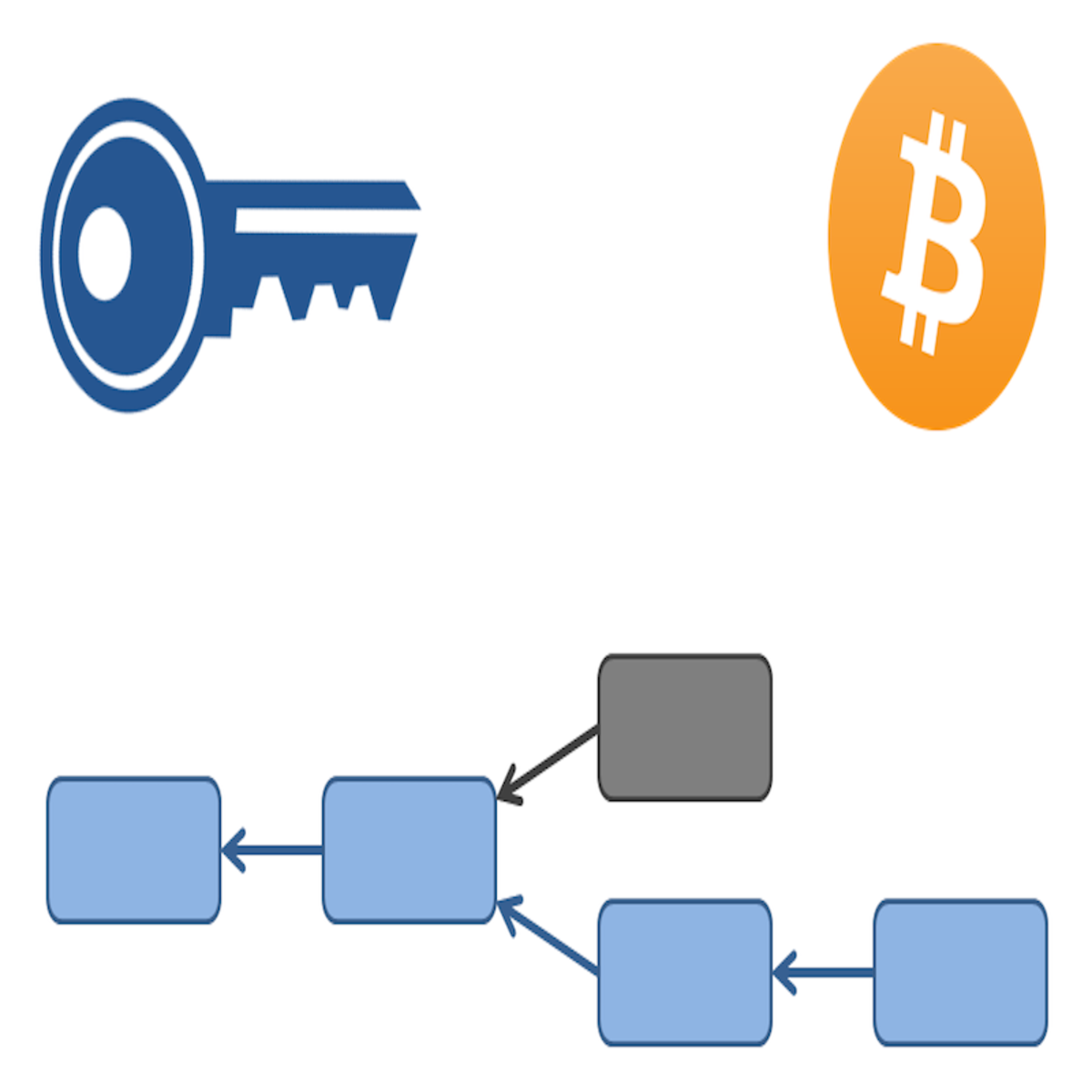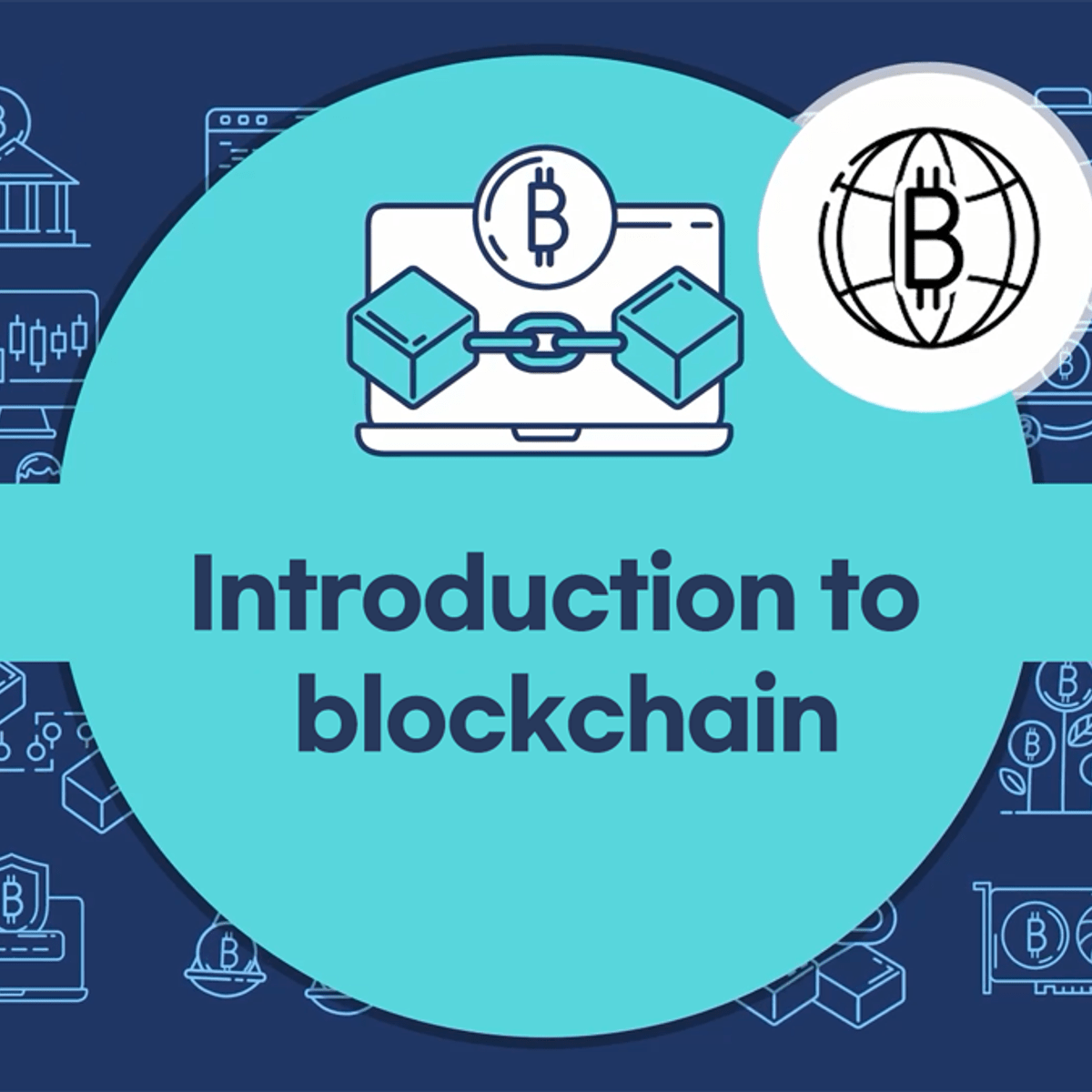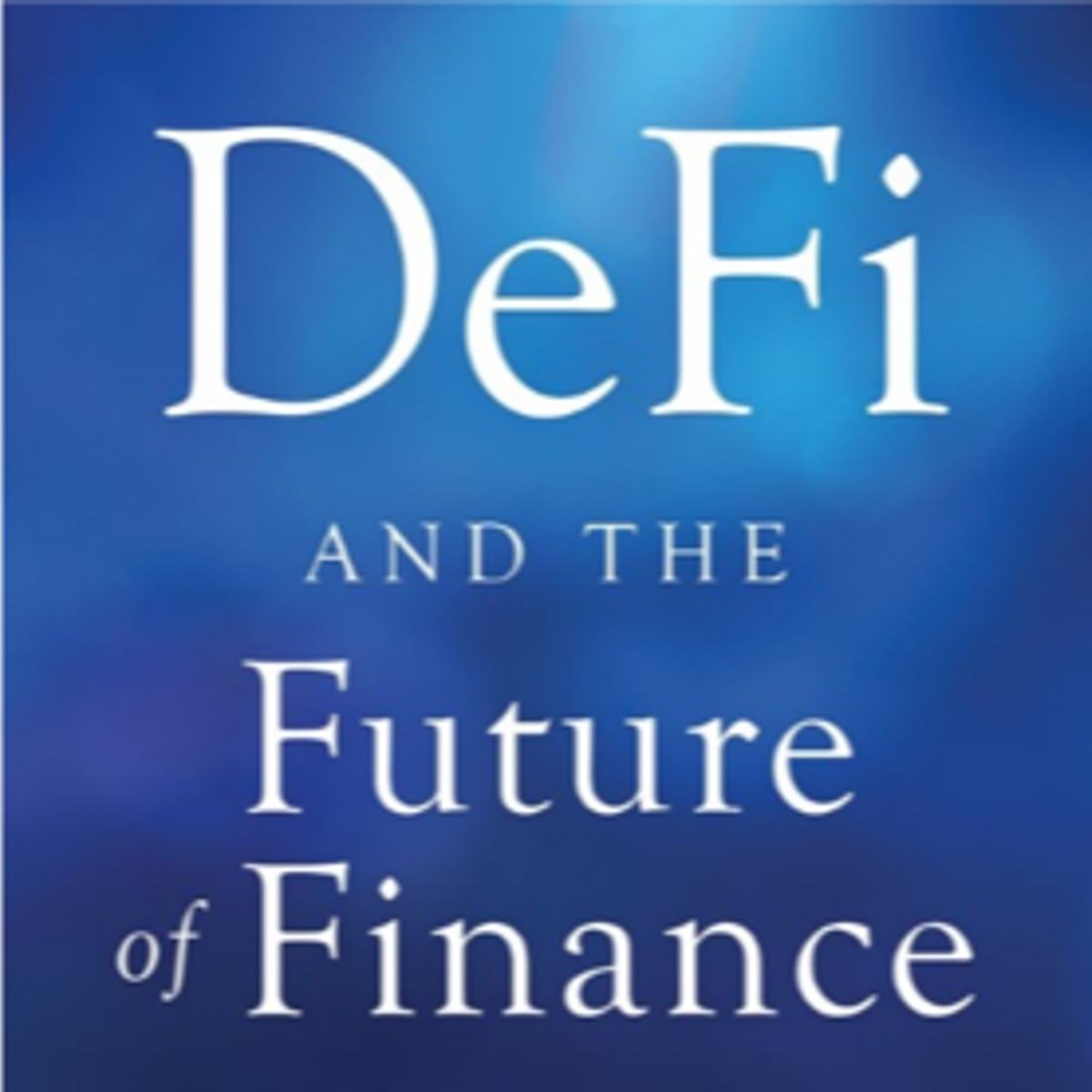Cryptocurrency Analyst
Navigating the Digital Frontier: A Career as a Cryptocurrency Analyst
A Cryptocurrency Analyst is a professional who delves into the intricate world of digital currencies and blockchain technology. Their primary role involves evaluating market trends, assessing the performance of various digital assets, and understanding the economic and technological factors that influence them. This career sits at the fascinating intersection of finance and technology, offering a dynamic environment for those intrigued by the future of money and decentralized systems.
Working as a Cryptocurrency Analyst can be engaging due to the ever-evolving nature of the field. Analysts are constantly learning about new blockchain projects, innovative financial instruments, and shifting regulatory landscapes. The thrill of dissecting complex market data, identifying emerging patterns, and forecasting potential price movements keeps the work intellectually stimulating. Furthermore, the insights generated by these analysts can significantly impact investment decisions for individuals and organizations, making the role both influential and rewarding.
What Does a Cryptocurrency Analyst Do?
The life of a Cryptocurrency Analyst is multifaceted, involving a blend of research, analysis, and communication. They are tasked with making sense of a volatile and often unpredictable market, providing clarity and strategic direction. This requires a keen analytical mind and a passion for staying ahead of the curve in a rapidly advancing technological domain.
Daily Responsibilities and Core Tasks
A significant portion of a Cryptocurrency Analyst's day is dedicated to market analysis. This involves studying price trends, trading volumes, and the overall behavior of various cryptocurrencies. They scrutinize historical data and current market conditions to identify patterns and predict future price movements. Beyond price action, analysts evaluate the underlying technology, including the architecture and security of different blockchains. This might involve assessing the viability of a new blockchain project or the potential impact of a network upgrade.
Risk assessment is another critical function. Analysts evaluate potential investment opportunities and the inherent risks in the cryptocurrency market. This includes understanding the security vulnerabilities of different platforms and protocols. They also monitor and assess the performance of digital assets and how they correlate with broader market events and news. Staying updated on industry news, regulatory developments, and technological advancements is paramount.
To make informed judgments, analysts employ various techniques. Fundamental analysis involves a deep dive into all available information about a cryptocurrency, including its whitepaper, development team, community engagement, tokenomics (the economics of the crypto token), and real-world use cases. The goal is to determine a cryptocurrency's intrinsic value. Technical analysis, on the other hand, focuses on past price movements and trading patterns to predict future market behavior, often using charting tools and statistical indicators. Increasingly, on-chain analysis, which involves examining data directly from the blockchain, is also a key skill.
Key Deliverables and Reporting
The insights and analyses generated by Cryptocurrency Analysts culminate in various deliverables. These often take the form of written reports, research papers, and investment recommendations. These documents might detail the potential of a specific cryptocurrency, the risks associated with a particular DeFi (Decentralized Finance) protocol, or an outlook on broader market trends.
Analysts may also develop models to forecast price movements or assess risk. Their findings are communicated to clients, investment teams, or the wider public through presentations, articles, or market commentary. Clear and concise communication is vital, as analysts must often explain complex technical and financial concepts to a diverse audience.
For those interested in the foundational aspects of blockchain, which is crucial for any analyst in this space, several online courses can provide a strong starting point. Understanding the underlying technology is key to performing robust analysis.
Collaboration and Teamwork
While much of the analytical work can be self-directed, Cryptocurrency Analysts rarely work in isolation. They frequently collaborate with a range of professionals. This includes software developers, particularly when evaluating the technical aspects of a blockchain project or a new decentralized application (dApp). They also work closely with traders, providing them with market insights and potential trading strategies.
Interaction with compliance teams is also common, especially given the evolving regulatory landscape for cryptocurrencies. Analysts may need to understand and interpret new regulations and assess their potential impact on the market or specific assets. Furthermore, they might engage with legal experts, particularly when dealing with issues like securities classification or intellectual property in the crypto space. Effective teamwork and communication skills are therefore essential for success in this role.
Formal Education Pathways
Embarking on a career as a Cryptocurrency Analyst often begins with a solid educational foundation. While the field is relatively new and pathways can be diverse, certain academic backgrounds provide a strong springboard into this exciting domain. The interdisciplinary nature of the role means that knowledge spanning finance, technology, and economics is highly valuable.
Relevant Undergraduate Degrees
A bachelor's degree is typically the minimum educational requirement for entry-level positions. Degrees in finance or economics provide a strong understanding of market dynamics, investment principles, financial modeling, and economic indicators, all of which are crucial for analyzing cryptocurrency markets. These programs equip students with the quantitative and analytical skills needed to dissect complex financial data.
Alternatively, a degree in computer science or a related technology field offers a deep understanding of the underlying technology, such as blockchain architecture, cryptography, and software development. This technical knowledge is invaluable for assessing the viability and security of cryptocurrency projects. Data science degrees are also increasingly relevant, given the large datasets analysts work with and the need for skills in statistical analysis and data visualization. Some universities are also beginning to offer specialized degrees or concentrations in blockchain technology or financial technology (FinTech), which directly cater to this career path.
For individuals looking to supplement their undergraduate studies or gain specific knowledge, online courses offer a flexible way to learn. Many platforms provide courses on financial markets, data analysis, and programming languages relevant to the field.
Specialized Master’s Programs
For those seeking to deepen their expertise or aim for more senior roles, a master’s degree can be advantageous. Specialized master's programs focusing on blockchain technology, cryptocurrency, or FinTech are emerging and offer focused curricula. These programs often delve into advanced topics like smart contract development, decentralized finance (DeFi), tokenomics, and regulatory aspects of digital assets.
An MBA with a finance or technology concentration can also be a strong pathway, particularly for roles that bridge technical analysis with business strategy and management. Some universities are integrating cryptocurrency and blockchain modules into their traditional finance and computer science master's programs, reflecting the growing importance of this field. These advanced degrees can provide a competitive edge in the job market.
To complement specialized master's programs, consider exploring books that delve into the intricacies of specific blockchain platforms and their applications. Understanding the nuances of prominent blockchains is crucial for in-depth analysis.
PhD Research Areas Impacting Cryptocurrency Analysis
At the doctoral level, research significantly contributes to the understanding and development of the cryptocurrency space. PhD programs in computer science, finance, economics, and cryptography are all relevant. Research areas that directly impact cryptocurrency analysis include the security and scalability of blockchain protocols, the economic modeling of crypto-assets, the development of new consensus mechanisms, and the analysis of market microstructure in digital asset exchanges.
Other impactful research areas include the application of artificial intelligence and machine learning to predict cryptocurrency price movements or detect fraudulent activities, the study of governance models for decentralized autonomous organizations (DAOs), and the legal and regulatory implications of emerging crypto technologies. Academics in these fields often publish cutting-edge research that informs the practices of cryptocurrency analysts and shapes the future direction of the industry. Their work can lead to new analytical tools, risk management techniques, and a deeper understanding of market behavior.
For those interested in the more technical and developmental aspects, which can inform deeper analytical capabilities, courses focusing on specific blockchain functionalities like smart contracts are highly beneficial.
Online Learning and Self-Education
The path to becoming a Cryptocurrency Analyst is not solely confined to traditional academic routes. The dynamic and rapidly evolving nature of the cryptocurrency space means that online learning and self-education play a crucial role, especially for career pivoters or those looking to augment their existing skills. OpenCourser offers a vast catalog to explore blockchain and cryptocurrency courses, catering to various skill levels.
Online courses provide an accessible and flexible way to acquire foundational knowledge and specialized skills. They can be particularly beneficial for understanding the technical underpinnings of blockchain, the nuances of different cryptocurrencies, and the analytical tools used in the field. For professionals already working in finance or technology, these resources can facilitate a smoother transition into the crypto domain.
Core Topics for Self-Study
Aspiring Cryptocurrency Analysts should focus their self-study on several core areas. A fundamental understanding of blockchain technology is paramount; this includes how distributed ledgers work, consensus mechanisms (like Proof-of-Work and Proof-of-Stake), and the basics of cryptography (such as hashing and digital signatures). It’s also important to learn about different types of cryptocurrencies, from major players like Bitcoin and Ethereum to various altcoins and their specific use cases.
Financial analysis techniques adapted for the crypto market are another key area. This includes learning both fundamental analysis (evaluating a project's intrinsic value based on its whitepaper, team, technology, and community) and technical analysis (analyzing price charts and trading patterns). Familiarity with market dynamics unique to crypto, such as the impact of news sentiment, regulatory announcements, and tokenomics, is also crucial. Understanding decentralized finance (DeFi) protocols, non-fungible tokens (NFTs), and other emerging areas within the crypto ecosystem will further enhance an analyst's capabilities.
Several online courses offer comprehensive introductions to these core topics, making them accessible for self-paced learning. These courses can help build a solid understanding of blockchain's foundational elements and the broader cryptocurrency landscape.
For a deeper dive into the mechanics of blockchain systems, the following book is a valuable resource.
Building Practical Projects
Theoretical knowledge gains significant value when applied practically. Aspiring analysts can solidify their understanding and build a portfolio by undertaking practical projects. Creating mock cryptocurrency portfolios and tracking their performance over time is a great way to practice investment strategy and risk management. This involves selecting different cryptocurrencies based on research and analysis, setting allocation percentages, and regularly reviewing the portfolio's progress against market movements.
Another valuable project is conducting a token audit or a deep-dive analysis of a specific cryptocurrency project. This could involve scrutinizing its whitepaper, evaluating the strength and experience of its development team, assessing its community engagement, analyzing its on-chain data (if publicly available), and comparing it to competitor projects. Presenting these findings in a well-structured report can showcase analytical and communication skills.
Participating in online crypto communities, forums, or even contributing to open-source blockchain projects can also provide practical experience and networking opportunities. Some learners might even try developing simple trading bots (with simulated funds initially) using programming languages like Python to apply their technical analysis skills. These hands-on experiences are invaluable for learning and demonstrating capability to potential employers.
Courses that offer hands-on labs or project-based learning can significantly accelerate the development of practical skills. For example, learning to create and deploy a simple token can provide a much richer understanding of how these digital assets function.
Certifications vs. Skill-Based Learning
In the rapidly evolving field of cryptocurrency, the debate between pursuing certifications and focusing on skill-based learning is pertinent. Certifications, such as the Certified Bitcoin Professional (CBP) or Certified Cryptocurrency Investigator (CCI), can demonstrate a certain level of knowledge and commitment to the field. They might be valued by some employers as a signal of foundational understanding, especially for individuals newer to the domain.
However, many in the industry place a higher emphasis on demonstrable skills and practical experience. The ability to perform in-depth market analysis, understand complex blockchain protocols, use data analysis tools effectively, and communicate findings clearly often outweighs formal certifications. A strong portfolio of projects, insightful analyses, or contributions to the crypto community can be more persuasive than a certificate alone.
Ultimately, a balanced approach might be the most effective. Certifications can provide structured learning paths and cover essential concepts, while a focus on acquiring and honing practical skills through projects, online courses, and real-world application ensures that an analyst is job-ready. The key is continuous learning and adapting to the fast-paced changes in the cryptocurrency landscape. Platforms like OpenCourser can help learners find a variety of resources to guide their self-learning journey and build those crucial skills.
For those looking to gain a broad yet thorough understanding of blockchain technology, which forms the backbone of cryptocurrencies, these courses are excellent starting points.
record:36
Tools and Technologies
A Cryptocurrency Analyst's toolkit is a diverse collection of software and platforms designed to navigate the complexities of the digital asset market. Proficiency in these tools is essential for gathering data, performing analysis, and staying ahead in a fast-paced environment. These technologies range from specialized blockchain explorers to general-purpose data analysis software.
Blockchain Explorers
Blockchain explorers are indispensable tools for any Cryptocurrency Analyst. These are web-based tools that allow users to view detailed information about a specific blockchain, including transactions, blocks, wallet addresses, and smart contract interactions. Popular examples include Etherscan for the Ethereum blockchain, Blockchain.com for Bitcoin, and Solscan for Solana. Analysts use explorers to trace transactions, verify token supplies, analyze network activity, and investigate the on-chain behavior of specific wallets or smart contracts.
Understanding how to effectively use blockchain explorers is crucial for conducting due diligence on projects, identifying potentially suspicious activity, and gathering raw data for on-chain analysis. For instance, an analyst might use an explorer to see the distribution of a particular token among its holders or to track the flow of funds related to a security incident. This direct insight into blockchain activity provides a level of transparency often unavailable in traditional financial markets.
Many introductory blockchain courses cover the basics of how to use these explorers and interpret the data they provide. These skills are fundamental for anyone looking to analyze cryptocurrencies at a deeper level.
Data Analysis Tools
Cryptocurrency analysts rely heavily on data analysis tools to process, interpret, and visualize market data. Proficiency in Python is highly valued, as it's a versatile language with extensive libraries (like Pandas, NumPy, and Matplotlib) for data manipulation, statistical analysis, and visualization. Python can be used for tasks ranging from fetching historical price data via APIs to developing complex predictive models.
SQL (Structured Query Language) is another important skill, particularly when working with large, structured datasets stored in databases. Some blockchain analytics platforms also provide SQL interfaces for querying on-chain data. Charting platforms like TradingView are widely used for technical analysis, offering a vast array of indicators, drawing tools, and social networking features for traders and analysts. Other tools like Microsoft Excel are also commonly used for data organization and simpler analyses.
To build skills in these essential data analysis tools, numerous online courses are available. These courses often provide hands-on exercises to apply the learned concepts to real-world (or simulated) financial data.
The ability to analyze data effectively is paramount. Books on data analysis and financial modeling can provide a strong theoretical and practical foundation.
Security Protocols and Auditing Software
Given the significant security risks inherent in the cryptocurrency space, an understanding of security protocols and, for some specialized roles, auditing software is important. Analysts, particularly those focusing on the security aspects of projects or investigating hacks, need to be aware of common attack vectors, security best practices for smart contracts, and wallet security.
While not all analysts will directly use smart contract auditing tools (which are typically handled by specialized security auditors), understanding the audit reports produced by these firms is crucial. These reports highlight potential vulnerabilities in a project's code. Familiarity with concepts like multi-signature wallets, hardware wallets, and the security features of different blockchain protocols contributes to a more comprehensive risk assessment of crypto assets.
For those wishing to delve deeper into the security aspects, there are courses focusing on blockchain security and cryptography.
Books on blockchain security and smart contract development can offer valuable insights into these critical areas.
Career Progression for Cryptocurrency Analysts
The career path for a Cryptocurrency Analyst is dynamic and offers various avenues for growth, reflecting the expanding nature of the digital asset industry. As analysts gain experience and deepen their expertise, they can move into more specialized or senior roles, with opportunities spanning across finance, technology, and strategy. The trajectory often depends on individual skills, interests, and the evolving needs of the market.
For those just starting, building a strong foundation through education and practical projects is key. OpenCourser provides a wealth of career development resources that can help individuals plan their learning journey and navigate the job market effectively.
Entry-Level Roles
Individuals typically enter the field in roles such as Junior Cryptocurrency Analyst, Research Assistant, or Data Analyst with a crypto focus. In these positions, the primary responsibilities often include gathering and organizing data, conducting preliminary market research, assisting senior analysts with report preparation, and monitoring market trends and news. These roles provide invaluable hands-on experience with analytical tools, blockchain explorers, and the day-to-day realities of the crypto market.
Entry-level professionals will learn to apply theoretical knowledge to real-world scenarios, refine their analytical skills, and develop a deeper understanding of specific cryptocurrencies and blockchain projects. This stage is crucial for building a strong foundation in both the technical and financial aspects of the field. Strong attention to detail, a willingness to learn quickly, and good communication skills are highly valued at this level.
To prepare for entry-level roles, foundational courses in blockchain and cryptocurrency are essential. These courses help build the basic knowledge required to understand the market and the technology.
A good introductory book can also provide a comprehensive overview of the space.
Mid-Career Paths
With a few years of experience, Cryptocurrency Analysts can progress to more specialized or senior roles. This might involve becoming a dedicated Cryptocurrency Analyst focusing on specific market segments (e.g., DeFi, NFTs, or specific blockchain ecosystems), a Portfolio Manager for crypto assets, or an advisor for Centralized Exchanges (CEXs) or Decentralized Exchanges (DEXs). Mid-career professionals are expected to conduct more in-depth analysis, develop investment strategies, manage risk, and potentially lead small teams or projects.
At this stage, analysts often develop a niche expertise. For example, some may focus on quantitative analysis and algorithmic trading strategies, while others might specialize in fundamental research and due diligence for new projects. Strong analytical, critical thinking, and decision-making skills are paramount. The ability to communicate complex insights effectively to diverse stakeholders, including clients or management, becomes increasingly important.
For those aiming for mid-career roles, especially in portfolio management or advanced analytics, specialized courses can be beneficial.
Books that delve into investment strategies and the evolving financial landscape are also highly relevant.
Leadership Roles
Experienced Cryptocurrency Analysts with a proven track record can advance to leadership positions. These roles might include Head of Research, Chief Risk Officer (for firms with significant crypto exposure), Director of Digital Assets, or Blockchain Project Lead. In such positions, responsibilities shift towards setting strategic direction, managing larger teams, overseeing significant investment portfolios, and representing the organization in industry forums or with regulatory bodies.
Leadership roles require not only deep expertise in cryptocurrency and blockchain technology but also strong management, strategic thinking, and communication skills. These professionals are often tasked with navigating complex regulatory environments, identifying long-term market opportunities, and driving innovation within their organizations. Some experienced analysts may also choose to start their own consulting firms, hedge funds, or crypto-focused businesses.
While specific courses for leadership roles are less common, advanced knowledge in areas like decentralized finance, tokenomics, and regulatory strategy becomes crucial. Continuous learning and staying at the forefront of industry developments are vital for success at this level.
Challenges and Risks
A career as a Cryptocurrency Analyst, while exciting and potentially lucrative, is not without its significant challenges and inherent risks. The very nature of the cryptocurrency market—its novelty, volatility, and rapid evolution—creates a demanding and often unpredictable work environment. Understanding these potential pitfalls is crucial for anyone considering this path, allowing for realistic expectations and better preparation.
The digital asset space is known for its constant flux, requiring analysts to be highly adaptable and resilient. The pressures can be substantial, but so too can the rewards for those who navigate these challenges successfully. Awareness and proactive strategies can help mitigate some of these risks.
Market Volatility and 24/7 Trading Cycles
One of the most defining characteristics of the cryptocurrency market is its extreme volatility. Prices can experience dramatic swings in very short periods, often influenced by a wide range of factors including news events, regulatory developments, technological breakthroughs, or even social media sentiment. This constant fluctuation creates a high-pressure environment for analysts who are tasked with making sense of these movements and providing timely advice.
Compounding this is the 24/7 nature of cryptocurrency trading. Unlike traditional stock markets with fixed trading hours, crypto markets operate continuously across the globe. This can lead to irregular working hours and the need to constantly monitor market activity, potentially impacting work-life balance. Analysts must be prepared for a fast-paced environment where market conditions can change rapidly, even outside of conventional business hours.
To navigate this, analysts develop strategies for filtering information and focusing on relevant signals. Courses that cover trading strategies and risk management can provide valuable frameworks, even if the analyst's role is not direct trading.
Understanding the investor's perspective can be very helpful, and books on cryptocurrency investing provide this insight.
Regulatory Uncertainty
The regulatory landscape for cryptocurrencies is still developing and varies significantly across different jurisdictions. Governments and financial authorities worldwide are grappling with how to classify and regulate digital assets, leading to a climate of uncertainty. This lack of clear, consistent regulation can create significant challenges for analysts. New rules or interpretations can emerge with little warning, drastically impacting market sentiment, the viability of certain projects, or the legality of specific activities.
Cryptocurrency analysts must therefore stay diligently informed about ongoing regulatory discussions, proposed legislation, and enforcement actions in key markets globally. This requires continuous research and the ability to interpret complex legal and regulatory documents. The uncertainty also means that risk assessments must account for potential regulatory shifts that could render certain assets or business models non-compliant or less viable in the future.
Courses and resources that discuss the legal and regulatory aspects of blockchain and cryptocurrencies can be very beneficial for understanding these complex issues.
According to a report by the OECD, international cooperation is growing to establish common regulatory standards, which may bring more clarity in the future. Another perspective from the IMF highlights the need for comprehensive and coordinated global regulatory frameworks.
Security Threats
The cryptocurrency space is a prime target for various security threats, including hacks of exchanges and DeFi protocols, scams, phishing attacks, and "rug pulls" (where developers abandon a project and abscond with investors' funds). These incidents can result in substantial financial losses for investors and damage the reputation of the affected platforms or projects. For analysts, these security risks add another layer of complexity to their work.
Analysts must be vigilant in assessing the security measures of the projects and platforms they evaluate. This might involve reviewing security audit reports (if available), understanding the technical architecture for potential vulnerabilities, and staying aware of emerging threat vectors. The prevalence of scams also means that analysts must be discerning and critical in their research, able to identify red flags and warn clients or the public about potentially fraudulent schemes. An understanding of cybersecurity principles as they apply to digital assets is increasingly important.
Learning about encryption, cryptography, and common security vulnerabilities is crucial. Specialized courses can provide in-depth knowledge in these areas.
Books on blockchain security offer comprehensive insights into protecting digital assets and understanding the threat landscape.
Ethical Considerations
The world of cryptocurrency analysis is not just about numbers and market trends; it also involves navigating a complex ethical landscape. The technology's transformative potential comes with responsibilities and considerations that analysts must be aware of. These ethical dimensions can influence public perception, regulatory approaches, and the long-term sustainability of the crypto ecosystem.
As professionals in this burgeoning field, cryptocurrency analysts may encounter situations where ethical judgment is paramount. Maintaining integrity and considering the broader societal impact of their work and the technologies they analyze is crucial. Organizations like the World Bank are also exploring both the potential and the risks, including ethical considerations, of blockchain technology.
Environmental Impact of Proof-of-Work Blockchains
A significant ethical concern, particularly associated with early cryptocurrencies like Bitcoin, is the environmental impact of Proof-of-Work (PoW) consensus mechanisms. PoW systems require vast amounts of computational power to validate transactions and secure the network, leading to substantial energy consumption. If this energy is sourced primarily from fossil fuels, it contributes to carbon emissions and climate change concerns.
Cryptocurrency analysts may need to consider these environmental factors when evaluating projects, especially as sustainability becomes an increasingly important investment criterion for individuals and institutions. The debate around PoW energy consumption has led to the development and adoption of alternative, less energy-intensive consensus mechanisms, such as Proof-of-Stake (PoS). Analysts should be knowledgeable about these alternatives and their respective trade-offs.
Understanding the different consensus mechanisms is key. Many blockchain fundamental courses cover this topic.
Decentralization vs. Regulatory Compliance
A core tenet of many cryptocurrencies is decentralization – the idea of a system operating without a central authority. This philosophy often clashes with the traditional financial system's reliance on regulation and oversight to ensure consumer protection, market stability, and the prevention of illicit activities. This tension creates ethical dilemmas for analysts and the industry as a whole.
Analysts must understand the arguments for both decentralization (e.g., censorship resistance, reduced counterparty risk) and regulatory compliance (e.g., investor protection, anti-money laundering). Evaluating projects often involves assessing how they navigate this balance. Some projects aim for maximum decentralization, potentially at the cost of regulatory ambiguity, while others proactively seek to comply with existing and emerging regulations. The ethical considerations involve how these choices impact users, investors, and the broader financial system.
Courses that touch upon the regulatory aspects of blockchain can provide context for this ongoing debate.
Books exploring the societal and economic implications of blockchain often discuss these tensions.
Insider Trading and Market Manipulation in Opaque Markets
The relative immaturity and, in some cases, opacity of cryptocurrency markets can create opportunities for unethical behavior such as insider trading and market manipulation. Unlike traditional stock markets, which have well-established rules and surveillance mechanisms to detect and deter such activities, the crypto space can be less transparent and more fragmented. This can make it harder to identify and prove manipulative practices.
Cryptocurrency analysts have an ethical responsibility to conduct their work with integrity and to be aware of the potential for market manipulation. This includes being critical of information sources, avoiding participation in or promotion of schemes designed to artificially inflate prices (e.g., "pump and dump" schemes), and adhering to any applicable regulations or codes of conduct regarding material non-public information. Maintaining a high ethical standard is crucial for building trust and credibility in this nascent industry.
Understanding market dynamics and potential pitfalls is crucial. Advanced courses on financial markets or specific DeFi courses might touch upon these aspects.
Frequently Asked Questions
Navigating a new career path can bring up many questions. This section aims to address some common inquiries about becoming and working as a Cryptocurrency Analyst, offering grounded insights to help you make informed decisions. The field is dynamic, and staying curious is key.
Can I become a Cryptocurrency Analyst without a finance background?
Yes, it is possible to become a Cryptocurrency Analyst without a traditional finance background, though it may require more focused effort in certain areas. Many successful analysts come from technology, computer science, data science, or even mathematics backgrounds. Strong analytical skills, a deep understanding of blockchain technology, and the ability to learn quickly are highly valued.
If your background is not in finance, you will need to dedicate time to learning core financial concepts, market analysis techniques (both fundamental and technical), and investment principles. Online courses, books, and self-study can be invaluable here. Building a portfolio of your analyses and projects can also demonstrate your capabilities to potential employers, regardless of your formal degree. Many employers in the crypto space value demonstrable skills and passion for the industry.
OpenCourser offers many resources for learning about finance and economics, which can help bridge any gaps in knowledge.
How does salary compare to traditional finance roles?
Salaries for Cryptocurrency Analysts can be competitive and, in some cases, may exceed those in comparable traditional finance roles, especially for individuals with specialized skills and experience. However, it's a wide range. Entry-level positions might start around $60,000 to $80,000 annually, with experienced analysts potentially earning well over $150,000. Some sources indicate average salaries around $76,000 to $120,000, but this can vary significantly based on location, company size, specific responsibilities, and the overall demand in the crypto market.
Factors influencing salary include depth of technical knowledge (blockchain, smart contracts), proficiency in data analysis tools (Python, SQL), experience with different types of crypto assets (DeFi, NFTs), and a proven track record of insightful analysis or successful investment strategies. The crypto industry is also known for its potential for bonuses or token-based compensation, which can further impact overall earnings, though this also comes with volatility. It's worth noting that salary data in this rapidly evolving field can fluctuate, so ongoing research into current market rates is advisable.
Is demand for analysts stable amid crypto market cycles?
The demand for Cryptocurrency Analysts can be influenced by crypto market cycles, but it's not solely dependent on them. During bull markets, when prices are rising and investor interest is high, there's often a surge in hiring for analysts and other crypto-related roles. Conversely, during bear markets or periods of consolidation, hiring might slow down in some areas.
However, the underlying technology and the broader adoption of blockchain and digital assets continue to grow, suggesting a long-term need for skilled analysts irrespective of short-term market fluctuations. Companies involved in building infrastructure, developing new protocols, focusing on regulatory compliance, or offering institutional-grade services often maintain a steady demand for analytical talent. Roles focused on risk management, security analysis, and fundamental project evaluation may also see more stable demand. The key is that as the industry matures, the need for sophisticated analysis persists.
What soft skills are most valuable?
Beyond technical expertise, several soft skills are crucial for a successful Cryptocurrency Analyst. Strong analytical and critical thinking skills are paramount for dissecting complex information, identifying patterns, and forming sound judgments in a volatile market. Effective communication skills, both written and verbal, are also essential for conveying complex analyses and recommendations clearly to clients, team members, or the public.
Adaptability and a willingness to learn continuously are vital, given the rapid pace of change in the crypto space. Attention to detail is critical, as small errors in data analysis or interpretation can lead to significant misjudgments. Problem-solving skills help in navigating unforeseen challenges and developing innovative analytical approaches. Lastly, ethical judgment and integrity are non-negotiable, especially in an industry that is still building trust and navigating regulatory scrutiny.
How important is advanced mathematics?
The importance of advanced mathematics can vary depending on the specific role and specialization of a Cryptocurrency Analyst. A solid understanding of basic statistics, probability, and quantitative reasoning is generally required for all analysts to interpret data and understand market metrics. For many roles involving market commentary, fundamental analysis, or qualitative research, a deep dive into highly advanced mathematics may not be a daily necessity, although a good quantitative aptitude is always beneficial.
However, for more specialized roles, particularly in quantitative analysis ("quant" roles), algorithmic trading, financial modeling, or risk management, advanced mathematical skills are highly important. This can include proficiency in calculus, linear algebra, econometrics, stochastic processes, and statistical modeling. These skills are necessary for developing and implementing complex trading algorithms, pricing derivatives, or building sophisticated risk models. So, while not universally mandatory at an advanced level, mathematical proficiency certainly enhances an analyst's capabilities and opens doors to more specialized career paths.
Exploring courses in mathematics or data science can be beneficial for those looking to strengthen their quantitative skills.
Are remote work opportunities common?
Yes, remote work opportunities are relatively common in the cryptocurrency industry, including for analyst roles. The crypto space has a strong global and digitally-native culture, with many companies, particularly startups and decentralized organizations (DAOs), operating with distributed teams from the outset. This often translates into greater flexibility regarding work location.
Many job listings for Cryptocurrency Analysts specify remote work options or a hybrid model. However, some traditional financial institutions or larger corporations entering the crypto space may have more conventional office-based requirements. The prevalence of remote work also depends on the specific company culture and the nature of the team collaboration required for the role. Tools for online communication and collaboration are widely used, facilitating effective remote teamwork.
The journey to becoming a Cryptocurrency Analyst is one of continuous learning and adaptation. This field offers a unique opportunity to be at the forefront of financial and technological innovation. With dedication and the right skills, you can build a rewarding career in this exciting and evolving domain.


















